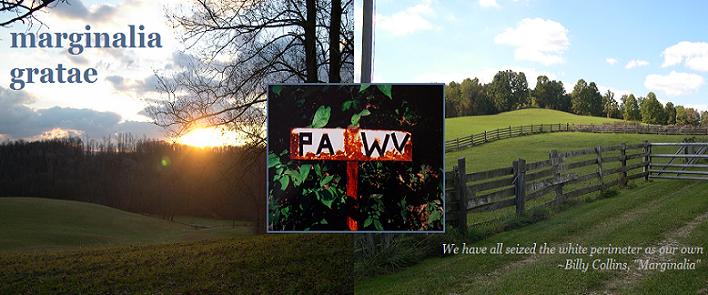“Hi. I’m Darcy. I’m a sophomore butchery major.”
“Hello. I’m Nate, a third-semester senior culinary major with an emphasis in fondant.”
“I’m Jamie, a junior candlestick-arts major. Hi.”
Instant identity tag, and it serves an interesting, perhaps important, social-rhetorical function. So when it comes to describing what it is I do—or, given the cultural practice and expectations associated with professional “branding,” who I am—I’m having a bit of a crisis. Well, maybe not crisis, per se, but something. A shift. A reorganization of self-knowledge. A period of adjustment. In the Maslow/Goldstein model, I guess I’m not self-actualized at the moment.
It may be the nature of graduate school, one function of which is to move the individual from student-status to professional-status, that explains my unrest; as a graduate student, I have been at once a student and an instructor. But even that has become more complicated: as a Ph.D. candidate, I’ve completed all my coursework, so I’m a student without a classroom. I’m working on a project that I hope will make at least some meaningful and original contribution to the field–or, rather, to at least one of the multiple fields I’m attempting to negotiate—so I am a student in that I am learning more all the time, Ancora Imparo, but I’m no longer attending classes: that phase of my formal education is complete. My professors feel less like professors, in the traditional sense, and more like colleague/mentors; those who were my classmates are now decisively my colleagues. It is a strange awakening. Not at all unpleasant, but certainly strange.
Then there’s the actual professional practice of teaching. When I teach, and I say this without arrogance, I teach very well. I am invested in my students’ learning because I am invested in my subject. But I don’t think of myself as a teacher. This perplexes people when I say it. Their eyes, under a skeptical, furrowed brow, ask, “but aren’t you planning to be a professor? And aren’t professors teachers?” Well . . . yes. But I don’t think of myself as a teacher. A facilitator, most certainly, but a teacher? It’s hard to explain, but the teaching-learning dynamic is different in higher education; therefore, the role of the instructor is also different. Further, as of this writing I have not been in an instructional role for almost a year; instead, I’ve been serving as a WPA for the program in which I have taught for the last two years. So what does this have to do with my search for a professional identity? Here’s my reasoning:
If teaching is my first love—no, wait. If teaching writing is my first love—but no, that’s not quite right either. Writing is my first love; teaching writing is the maturation of that love. Still, I’m not certain I want to marry my first love. Without it, though, I couldn’t understand the role of a WPA (my new love?); I couldn’t be an advocate for the multiple constituencies—most importantly the students and their instructors—invested in the program, and I wouldn’t understand the policies and practices that inform the culture of the writing program(s) I serve, nor could I grasp the implications of said policies and practices.
Add to all of this that my field is rhetoric, at once unintentionally esoteric and ubiquitous and generally misunderstood; that my scholarly interests and curiosities are about as orderly as the flickering of fireflies over a hayfield in late August; and that, in addition, I still consider myself something of a poet, essayist, Jazz Age Literature scholar, et al., then the process of branding becomes even more complicated: when I try to explain to folks what I do, I am met with the very same skeptical, furrowed brow as referenced above.
So every little pebble I’ve cobbled together to this point in my career reveals nothing, yet, of a cogent professional identity. The artistic, slightly bohemian side of me says, “Oh, how delightfully chaotic,” but the “old-style conservative realist” (Lieven) in me says, “Focus. Get organized. Be precise. You can’t market what you can’t parcel.” Given that it will soon be my turn to commit myself to the academic job market, my old-style conservative realist makes a compelling argument, but this collage is proving difficult to brand.

